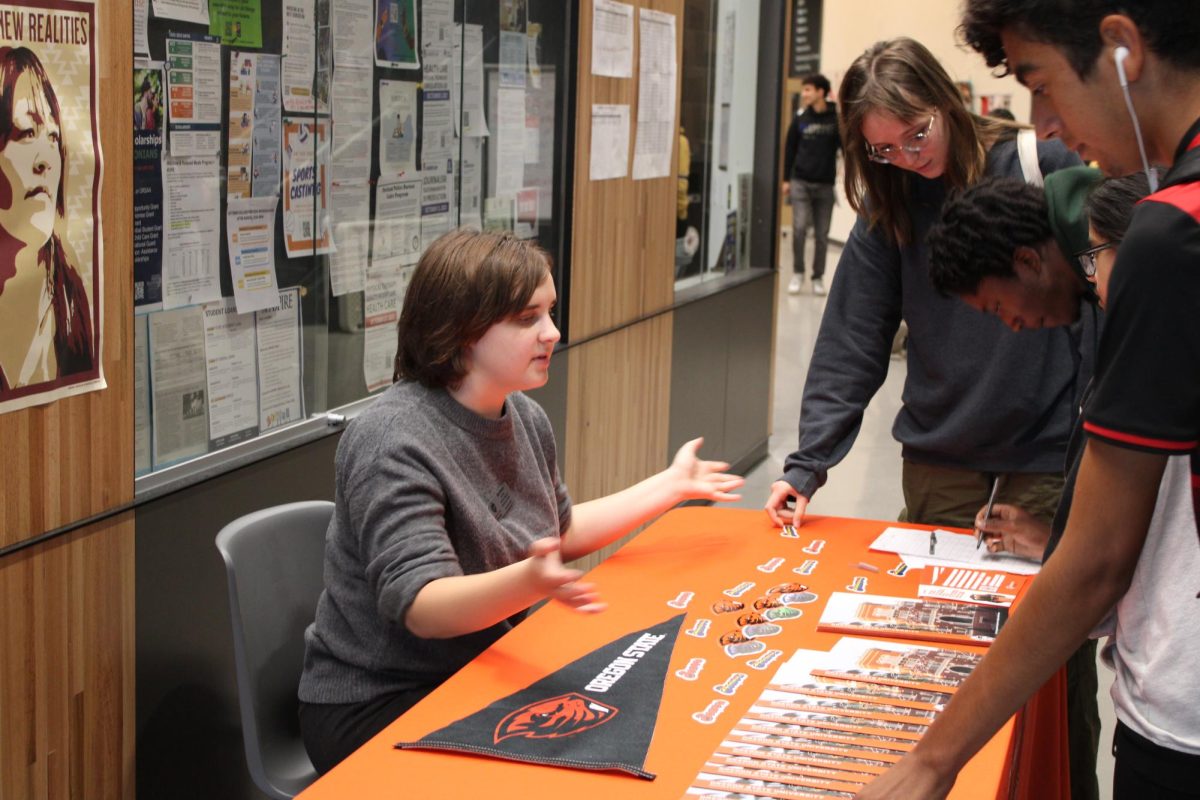College representatives visit high schools during the beginning of the school year. What do they aim to accomplish during a visit, and what do seniors get from talking with a representative?
Before the school year starts, college representatives reach out to Aliera Zeledon-Morasch, Lincoln’s college coordinator. Through Zeledon-Morasch, the college reps reserve a table for FLEX time, lunch or after school.
Students have the opportunity to meet with visiting representatives to discuss what their university offers and learn how to strengthen their applications.
Colby College Associate Director of Admissions Karin Parsons occupied a table outside the College and Career Center on October 5 after school. Colby College is located in Waterville, Maine, and has had applications from Lincoln in the past. Parsons said her main goal when visiting was to cultivate past interest into new applicants.
“I’m looking to make students aware of us as a college and hopefully get interest from high achieving students that are looking to go to college out East,” said Parsons.
Andrew Hong, senior and IB diploma candidate, tries to visit every college representative that comes to Lincoln.
“When I’m talking to a college representative, I have two modes. The first one is to learn more about the college and what it has to offer. The second part of that is wanting to be noticed, and by showing interest to those colleges,” said Hong. “A lot of them track interest, especially if you’re talking directly to an admissions counselor and asking them what they want to see in an applicant.”
According to US News, universities track demonstrated interest, meaning whether prospective students have shown interest in their school. One way students can do so is by speaking with a representative.
Oregon State University Portland regional admissions advisor Zoe Braun also visited Lincoln on October 5. In late January, she will review applications with two other advisors in Corvallis, Oregon.
“We review [all] applications holistically, meaning we look over the application and person as a whole instead of its parts.” said Braun.
Parsons will also read applications.
“I usually do the first read [of an application] for a state. Then we [read] it as an office.”
Hong believes the college application process becomes more equitable when representatives visit high schools.
“You’re making sure that students are going to school, no matter their race, gender or economic status, and [they are] getting an opportunity to speak with college representatives.”

